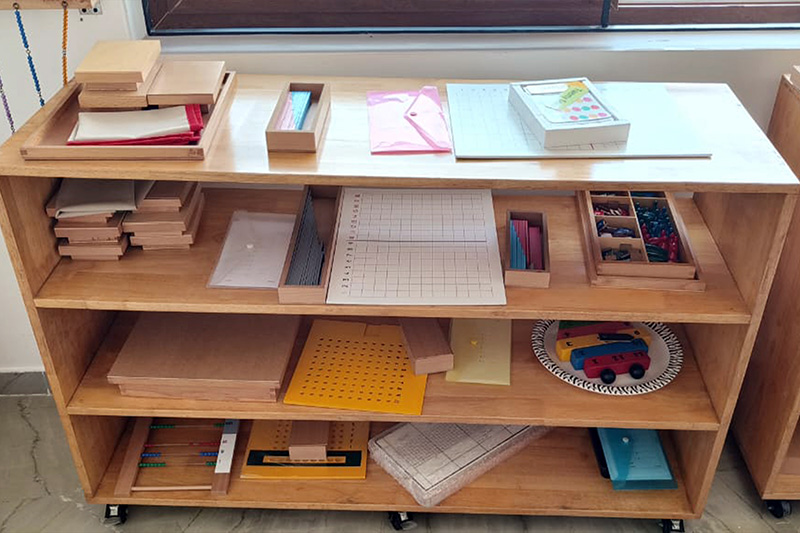
Independence, concentration, coordination and social skills are learned and refined through the exercises of Practical Life. These activities link the home environment to the school environment and develop everyday life skills through real and purposeful work. The lessons are designed to refine fine motor skills, help gain greater control over movements, foster a sense of order and build concentration. These further aid in the development of logical thought, ability to sequence and explore spatial relationships and promote cultural awareness and adaptation. These indirectly prepare children for later exercises in reading and writing.
Sensorial activities refine sensory perception. The sensorial materials help develop a child’s hand-eye coordination, fine/large motor skills, spatial awareness, object permanence and classification skills. Sensorial exercises include exploration and classification which deepen a child’s understanding of his world. Many of the sensorial materials lay a foundation for later work in Geometry.
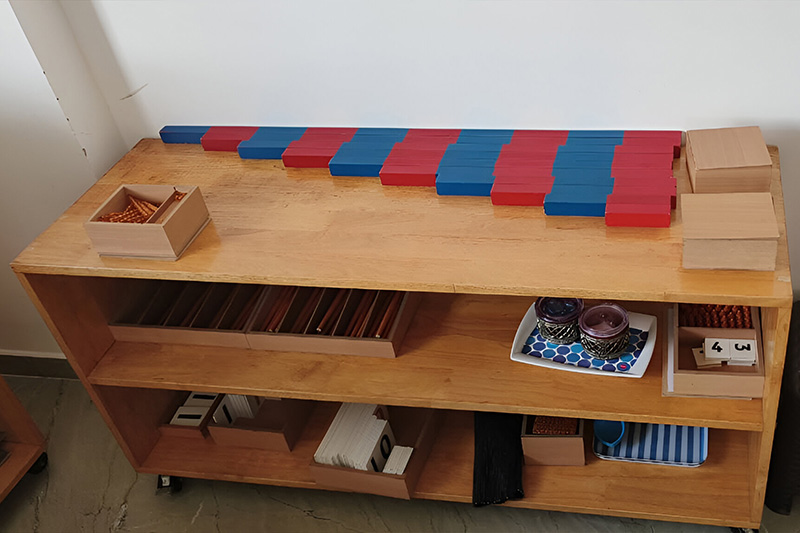
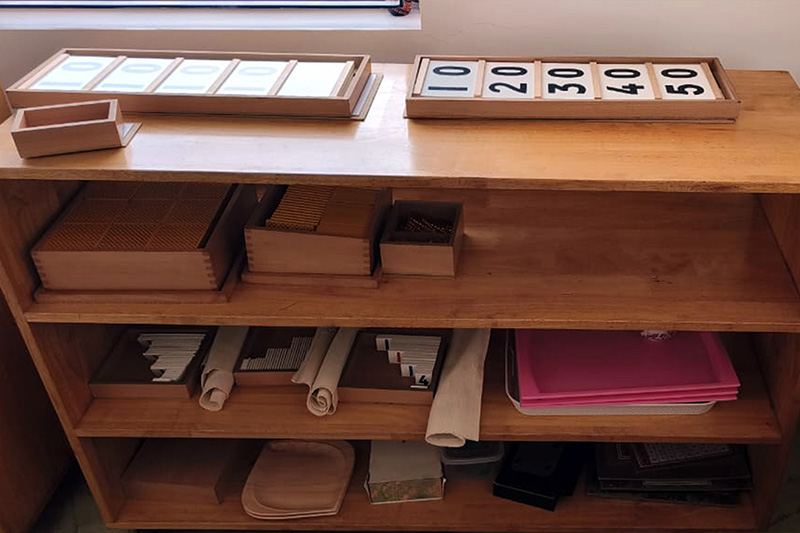
The Language program focuses on spoken language, writing and reading. Starting with cursive sandpaper letters and phonetic sounds, children experience a wide range of lessons that prepare them for creative writing and reading phonetically and in some cases fluently.
The decimal bead material gives children a strong foundation and a deep understanding of the four operations: addition, subtraction, multiplication and division. They are then presented with lessons that help them to memorize simple math facts.
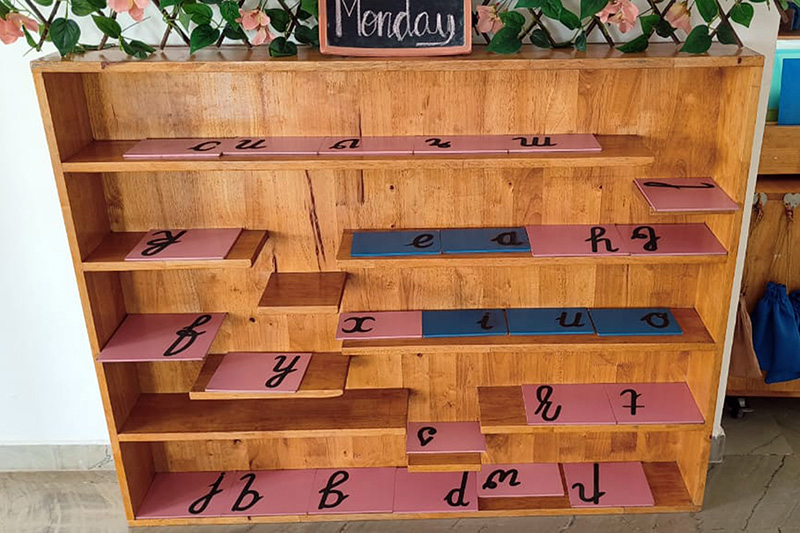
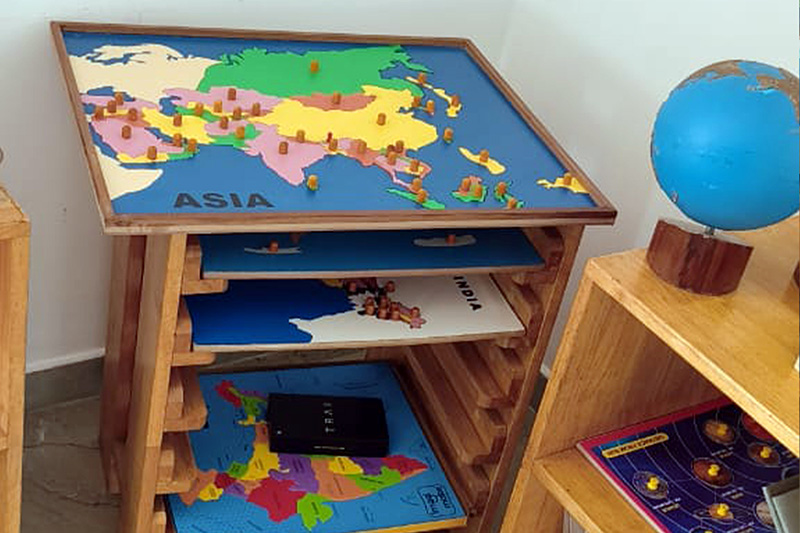
Understanding of Geography, History, Biology, other sciences, music and the arts. Concepts are introduced indirectly through the daily routines, activities, singing songs, stories, reading books and celebrating festivals. The goals are to offer concrete exploration to help classify the child’s understanding of his world.